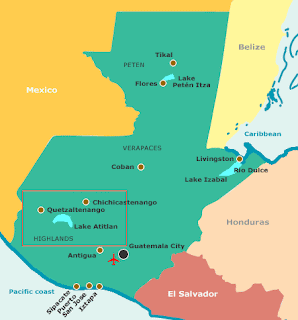Guat’s Up
friends and family!?
Our first month here has been eventful – election mayhem and peaceful protests bringing thousands of citizens from all socioeconomic and political classes together. It’s been amazing to witness all the momentum towards positive change.
We have also been able to travel to gorgeous spots. Here is MattKat at Lago de Atitlan this weekend.
[ Hi! ]
[ Magical ]
As Matt mentioned in his previous post, he has been slaving away at his job in the big city, while I have been taking Spanish classes and living in a home-stay in beautiful Antigua (except for last week when I traveled with Matt for his work trip and took classes at a school in Guate’s second city, Quetzaltenango, a town in the country’s Western Highlands).
As Matt mentioned in his previous post, he has been slaving away at his job in the big city, while I have been taking Spanish classes and living in a home-stay in beautiful Antigua (except for last week when I traveled with Matt for his work trip and took classes at a school in Guate’s second city, Quetzaltenango, a town in the country’s Western Highlands).
My
teacher in Antigua is Carmen, a wonderful woman who is incredibly funny,
patient and kind (she and I are pictured slightly blurry below). I have a blast
conversing with her for hours on end. Our talks range from the mundane - such as
how to order food in a restaurant, to Guatemalan politics and gender
inequality. She is 36 and studying to be a lawyer in Antigua but law school is
time-intensive (5 years) and expensive.
[ Hola Carmen! ]
My homestay situation, although rewarding, has been less than comfortable. My Spanish is choppy and I feel like an idiot. I’m the outsider in the house who is incapable of complex sentence structure. Ugh. I want them to think of me as more than just a walking dollar sign, but they frequently ask me to borrow money and don’t seem particularly concerned with paying me back. The money is insignificant, but I’m hung up on the principle. It’s the same feeling when I buy food from the corner store and the owner charges me 3x what he charges a Guatemalteco. On the one hand, I realize that my dollar will go farther in the owner’s hands and he needs the money more than I do. On the other hand, it’s hard to fight back against my natural instincts of not wanting to get ripped off just because I’m a gringa.
[ Antigua ]
I’ve also been looking for work in policy arenas where there is serious need– and there is a lot of need since Guatemala trails its Latin American counterparts in virtually every social and economic indicator – from maternal mortality to gender inequality, from poverty to childhood nutrition.
I’ve also been looking for work in policy arenas where there is serious need– and there is a lot of need since Guatemala trails its Latin American counterparts in virtually every social and economic indicator – from maternal mortality to gender inequality, from poverty to childhood nutrition.
We’ve been reading a lot about the battle over Planned Parenthood and the fate of healthcare options for low income women in the US, which has a lot of parallels for women here.
In Guatemala, the average indigenous woman has an average of 4.5 children (vs. 3 for non-indigenous women) and half of all Guatemalan children are chronically malnourished to the point of physical stunting.
[ These photos are from a free dental clinic I
volunteered at that was funded by contributions from the United States (George Mason University). Free
clinics are the only healthcare option for most. ]
Abortion is illegal in Guatemalan but the use of contraceptive methods (including the opportunity to plan and space pregnancies) is perfectly legal and not used by the indigenous population because there is miscommunication and a lack of education. Health facilities are poorly stocked and there is a strong machista culture that doesn’t afford women much agency to make choices without their husbands.
It would cost Guatemala relatively little to educate their low-literacy indigenous populations living in remote areas. I think that creating and expanding programs that combat myths about birth control and stress the importance of planning pregnancies will help reduce poverty significantly.
Ok that’s enough serious talk for now.
Next post from me will be about our new dog (we don't have him/her yet but she/he is coming!)
Abortion is illegal in Guatemalan but the use of contraceptive methods (including the opportunity to plan and space pregnancies) is perfectly legal and not used by the indigenous population because there is miscommunication and a lack of education. Health facilities are poorly stocked and there is a strong machista culture that doesn’t afford women much agency to make choices without their husbands.
It would cost Guatemala relatively little to educate their low-literacy indigenous populations living in remote areas. I think that creating and expanding programs that combat myths about birth control and stress the importance of planning pregnancies will help reduce poverty significantly.
Ok that’s enough serious talk for now.
Next post from me will be about our new dog (we don't have him/her yet but she/he is coming!)













